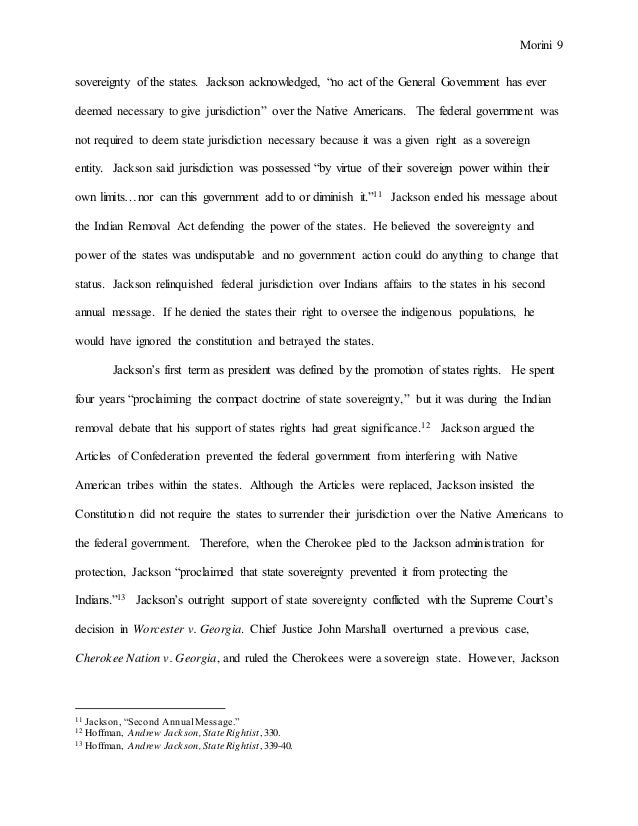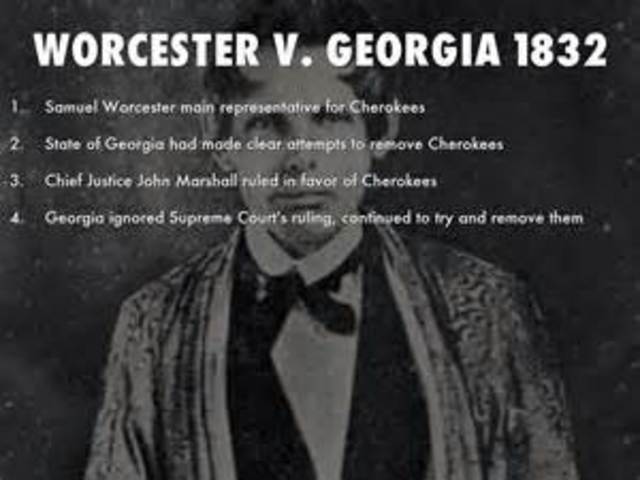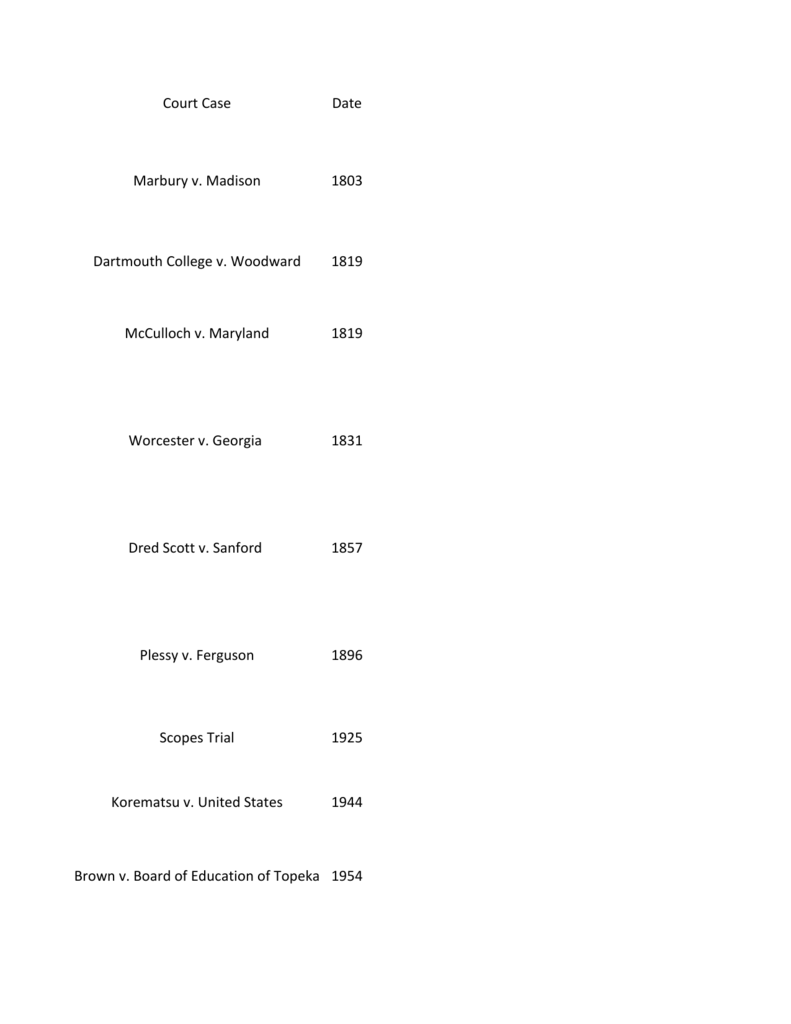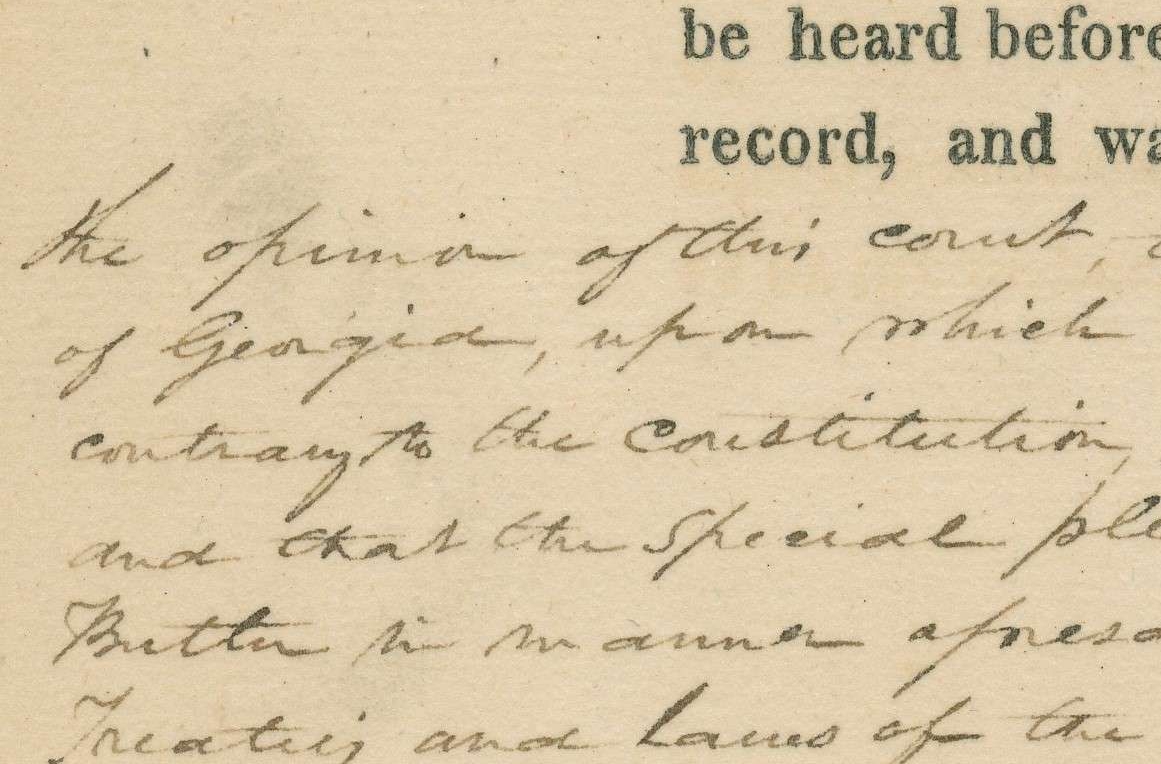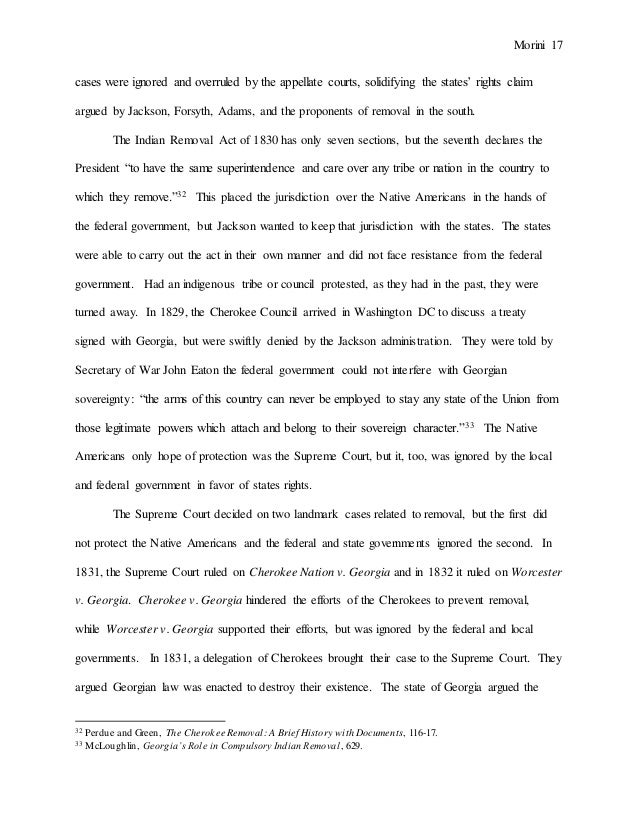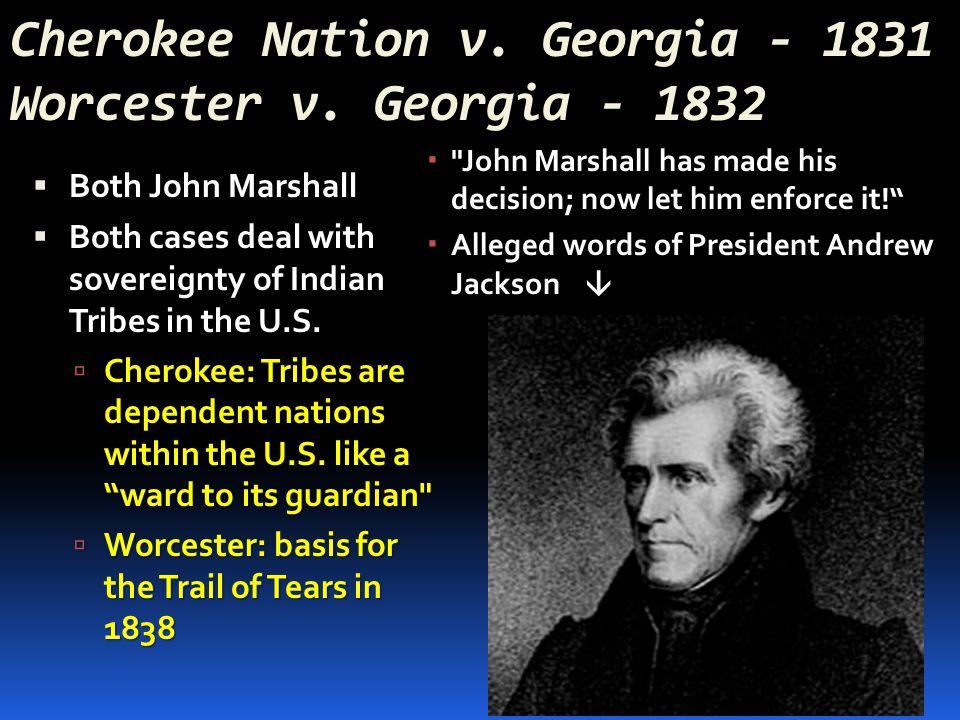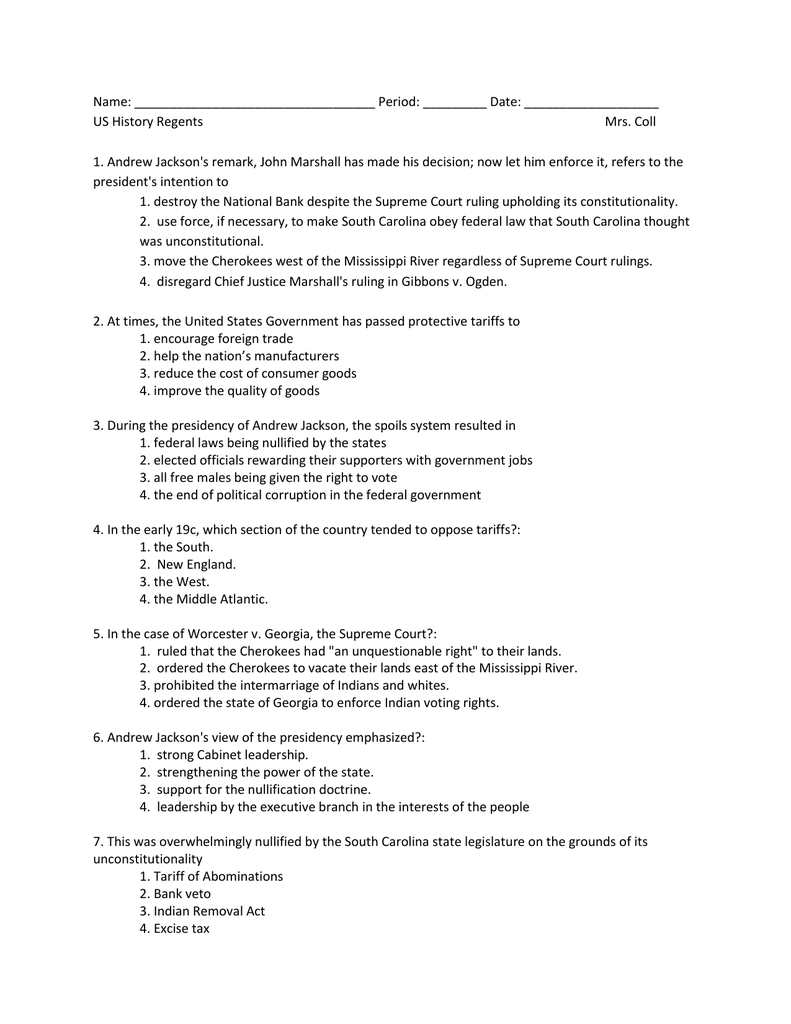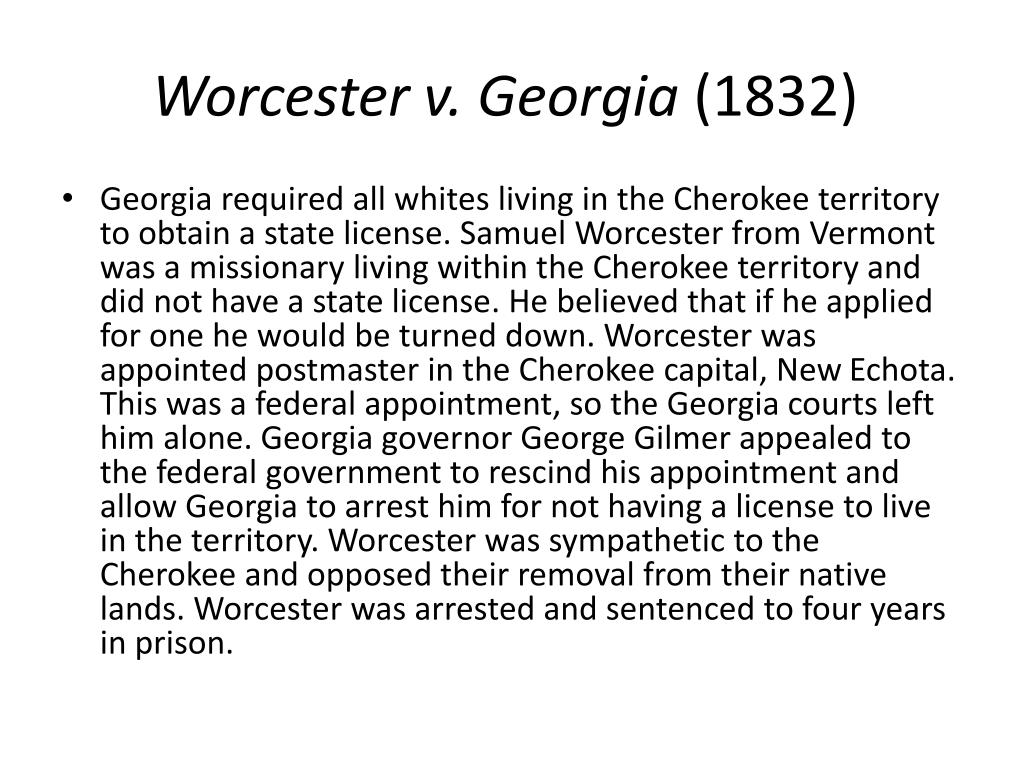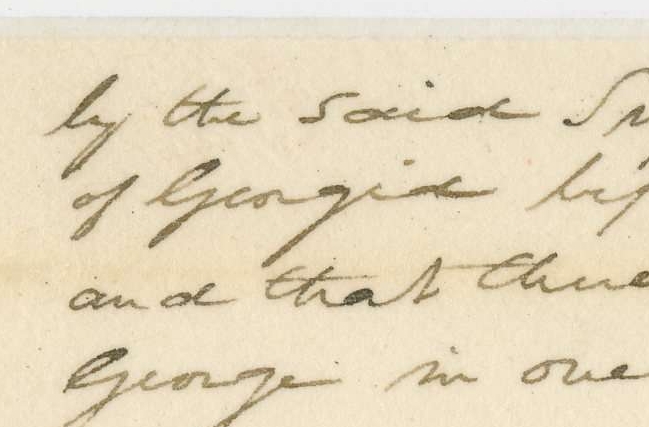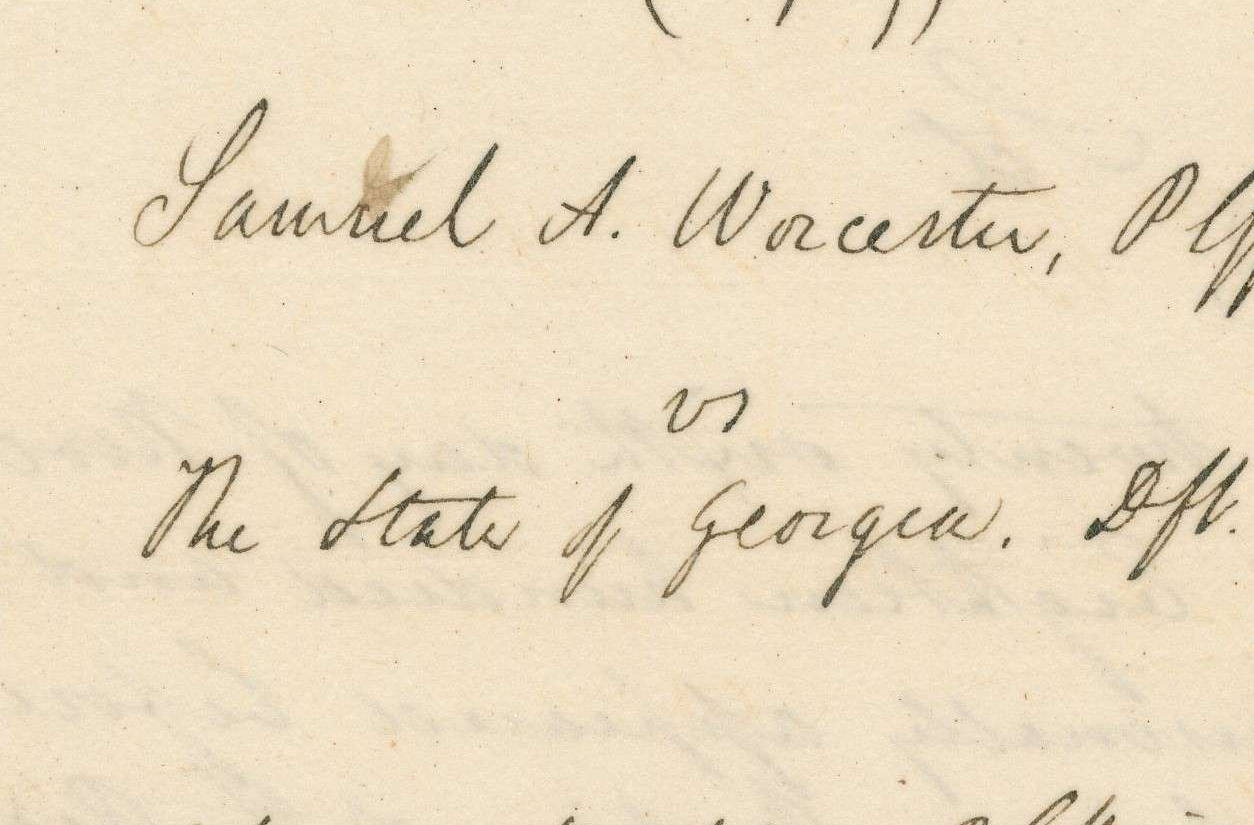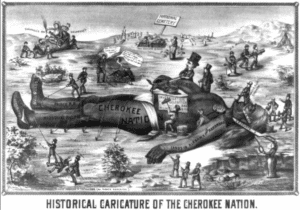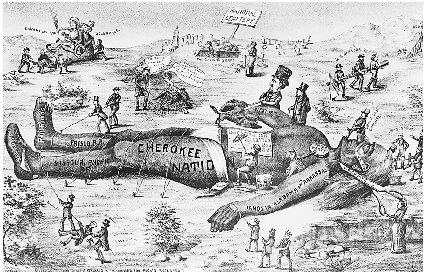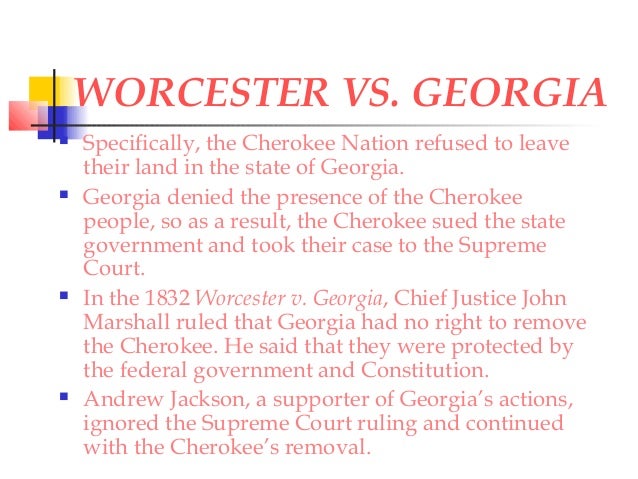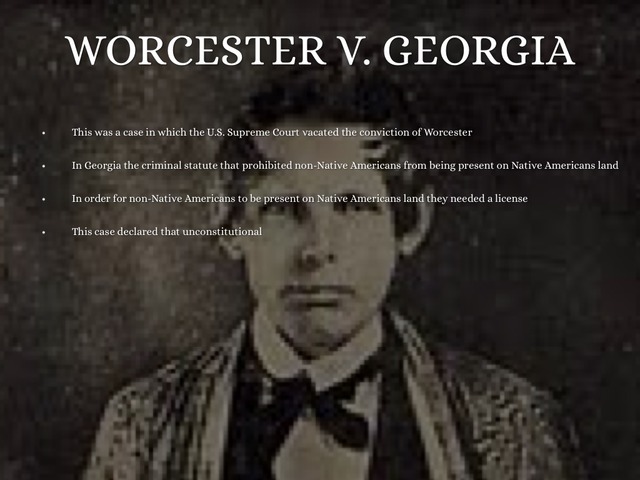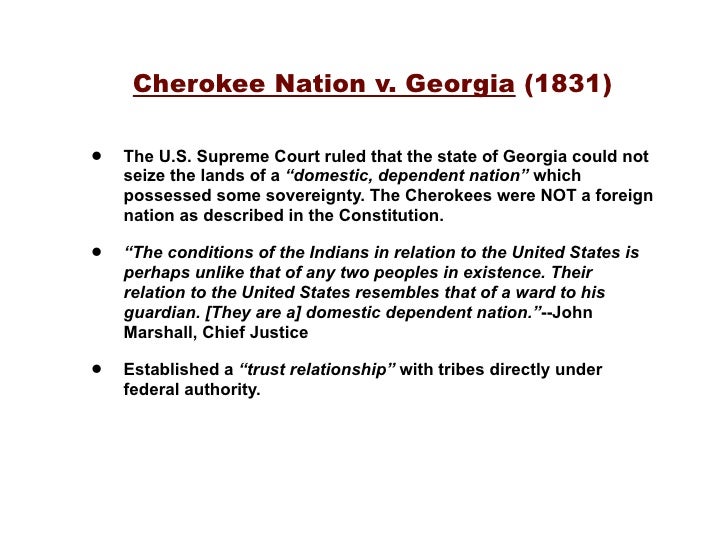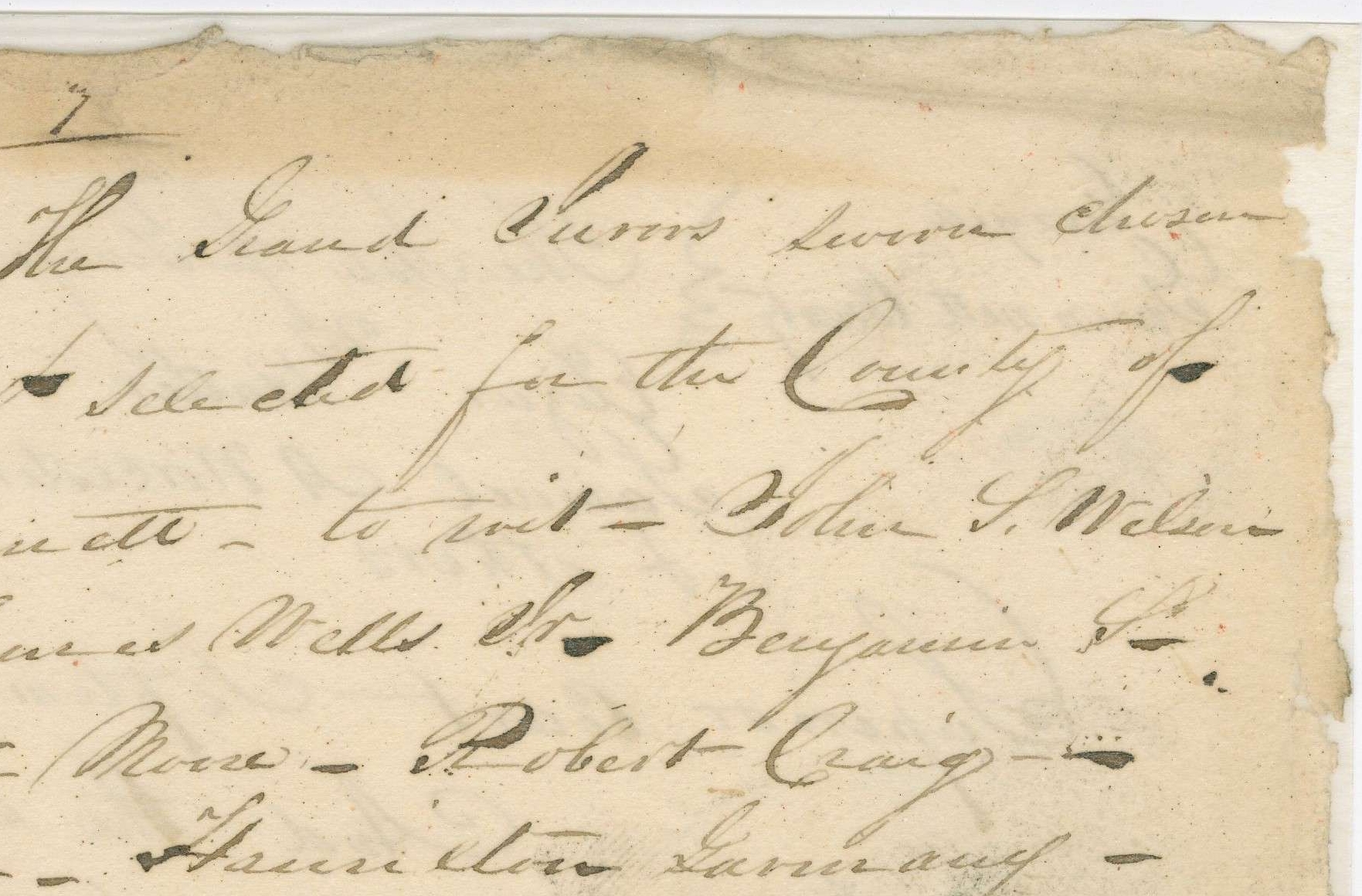Worcester V Georgia Date
The political autonomy native american tribes have today is based in part on the precedent of worcester v.

Worcester v georgia date. Georgia legal case in which the us. 5 pet 1 1831 was a united states supreme court case. The following is a case profile of the legal trial eponymously titled worcester v.
Given under my hand and seal aforesaid the day and date above written john g. Date of the trial. 6 pet 515 1832 was a landmark case in which the united states supreme court vacated the conviction of samuel worcester and held that the georgia criminal statute that prohibited non native americans from being present on native american lands without a license from the state was unconstitutional.
Certiorari to the superior court for the county of gwinett in the state of georgia. The case profile of worcester v. 515 515 1832 worcester v.
Supreme court in march 1832 held that the states did not have the right to impose regulations on native american land. It ruled that it had no original jurisdiction in the matter as the cherokees were a dependent. Several missionaries including worcester and butler.
Georgia is a landmark decision because it supported subsequent laws pertaining to the autonomy of native american lands in the united states. The opinion is most famous for its dicta which laid out the. Georgia gave the missionaries until march 1 1831 to obtain a license of residency or leave the cherokee nation.
The case was filed by worcester who claimed that his familys forced removal was a violation of his constitutional rights. President andrew jackson refused to enforce the ruling but the decision helped form the basis for most subsequent indian law in the us. State of georgia depriving them of rights within its boundaries but the supreme court did not hear the case on its merits.
The cherokee nation sought a federal injunction against laws passed by the us. Georgia began on february 20th of 1832. He believed the state of georgia over stepped their boundaries for they did not maintain jurisdiction to enforce the law within the native land.
The georgia government recognized that worcester was influential in the cherokee resistance movement and enacted a law that prohibited white persons from residing within the cherokee nation without permission from the state.
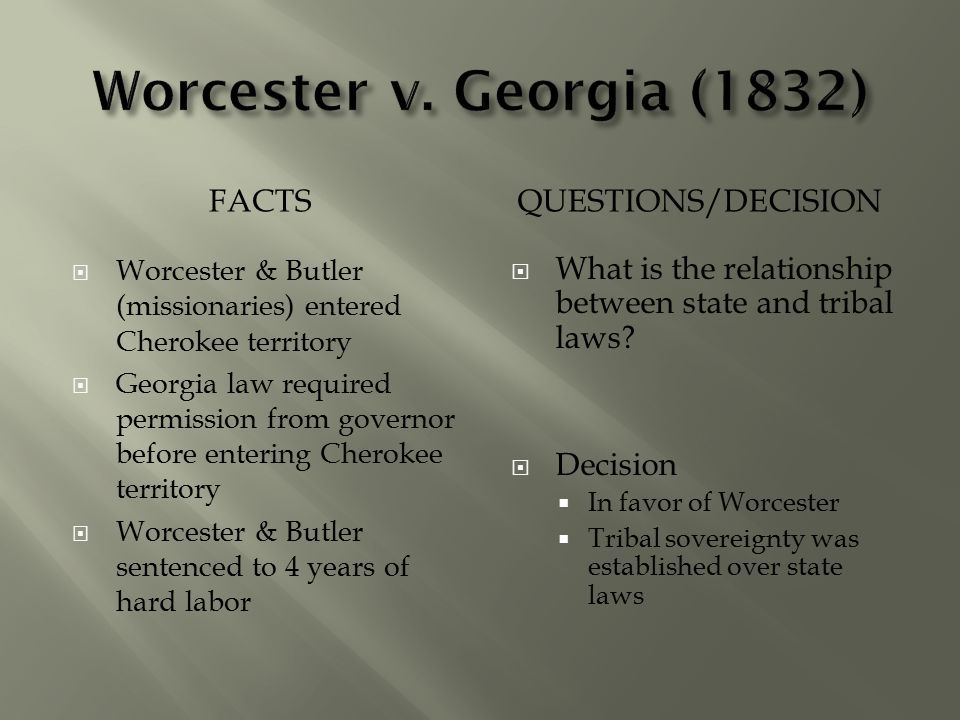







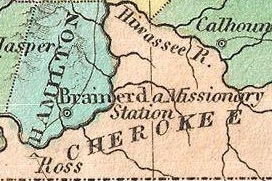

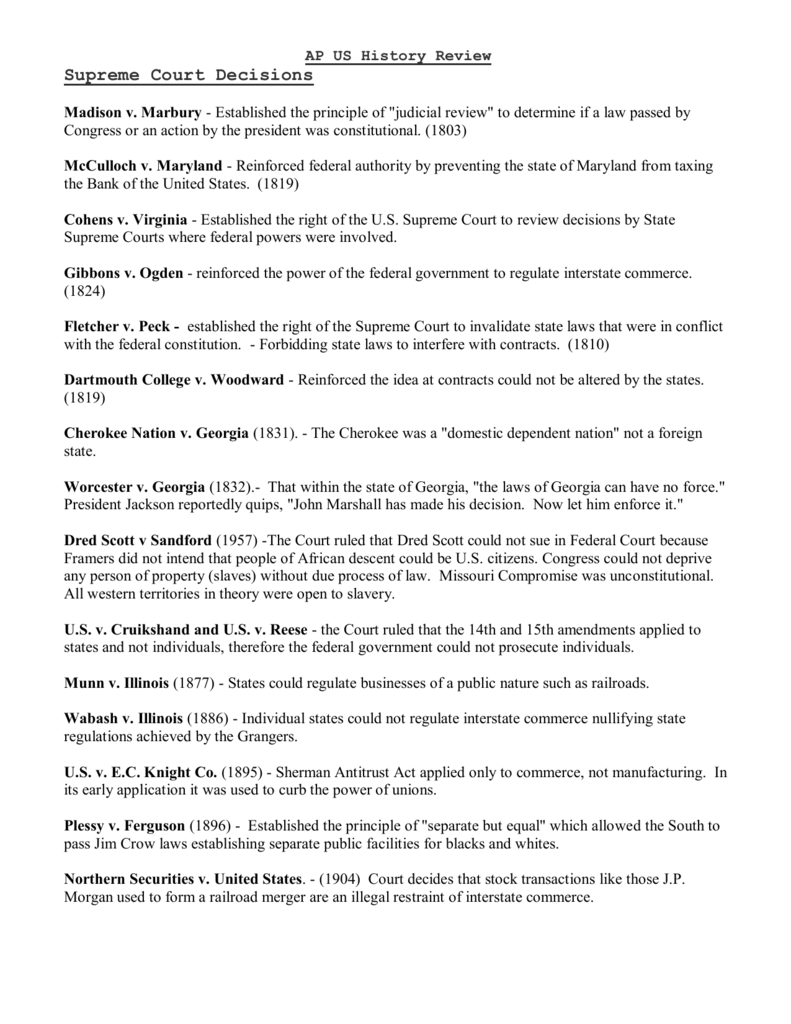



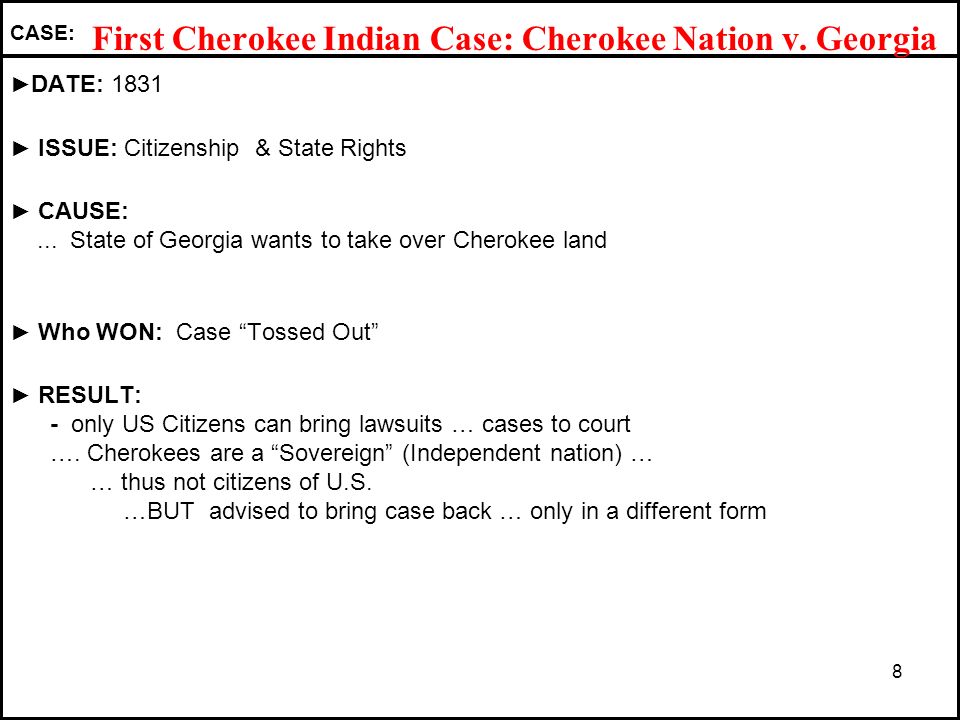


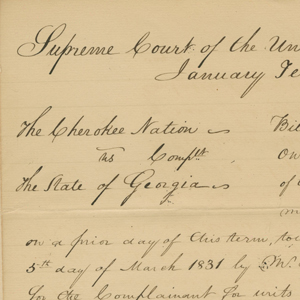


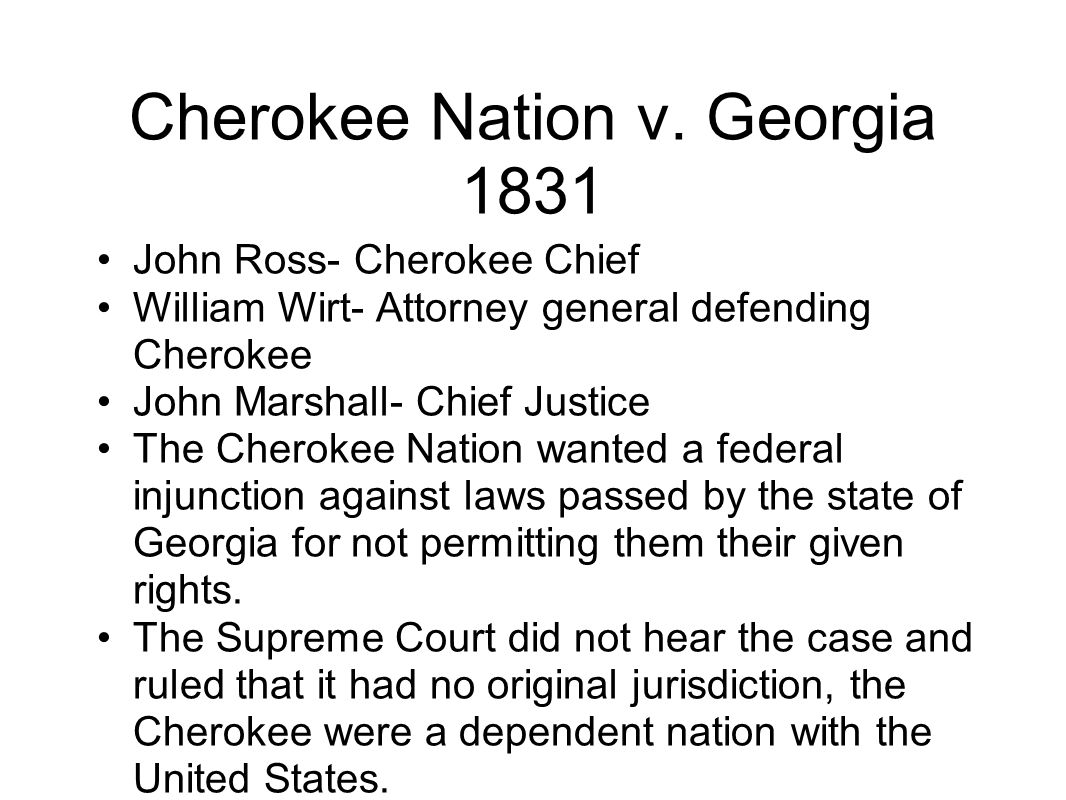



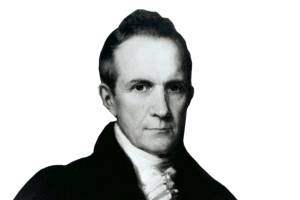


/GettyImages-915260962-5b7f248b46e0fb0050025548.jpg)



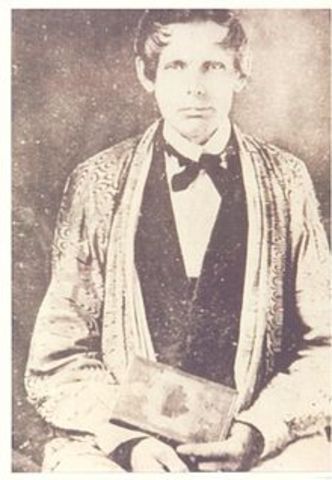




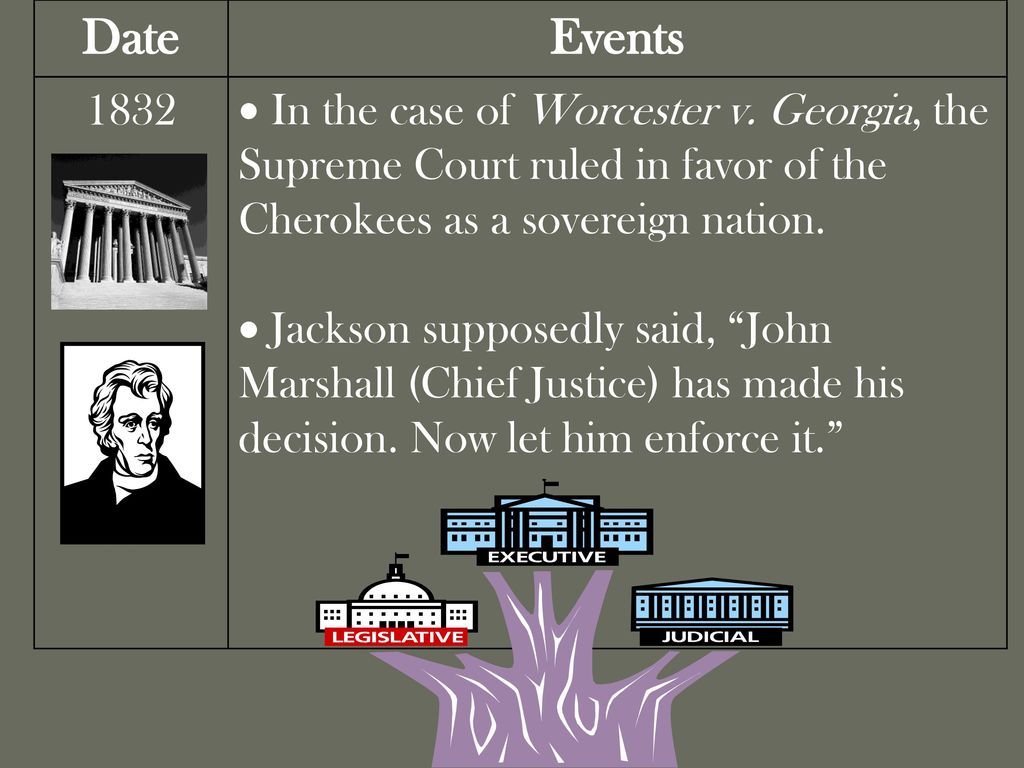


/GettyImages-915260962-5b7f248b46e0fb0050025548.jpg)



